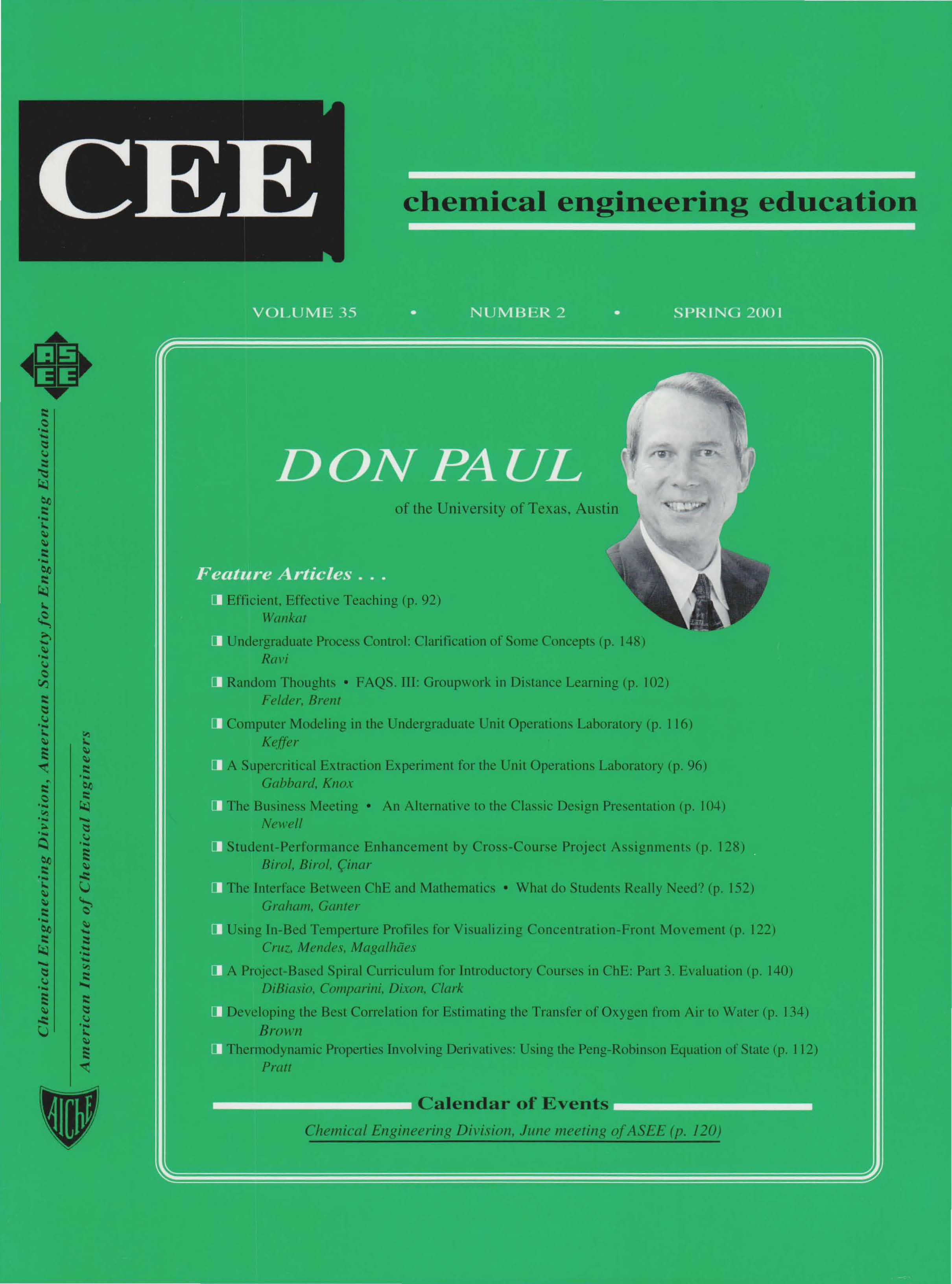A Project-Based Spiral Curriculum for Introductory Courses in ChE: III. Evaluation
摘要
Two previous papers in this series presented the design and implementation of a novel, project-based, spiral curriculum for the first year of chemical engineering. This paper describes the evaluation of the project. Results from a variety of measurements and analysis converged upon a consistent answer. Compared to traditionally taught students, spiral-taught students displayed equal or better understanding of basic chemical engineering principles, were better in teams at solving open-ended problems, had higher satisfaction levels with their academic experience, had higher retention rates, were more confident about their choice of chemical engineering as a major, and performed better in upper-level chemical engineering courses.


